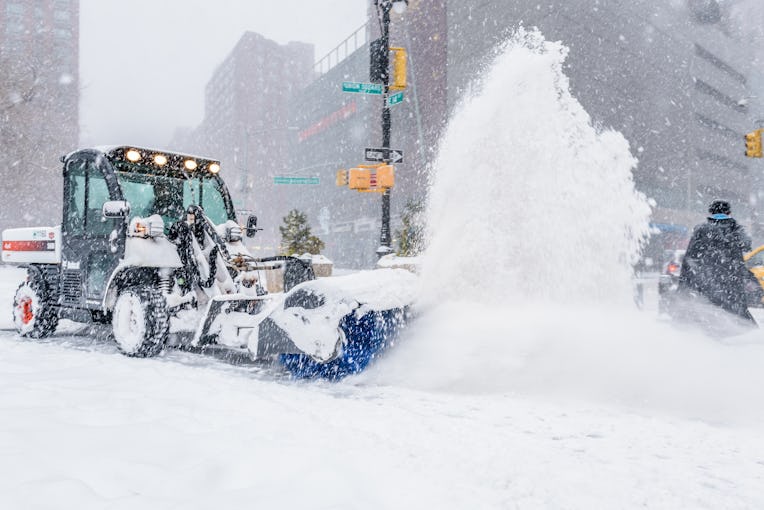What’s in a Name? In “Bomb Cyclone,” Pure Terror
It’s actually on purpose

There is a meteorological phenomenon known as “bomb cyclone” that East Coasters may have come across, oh, two or three dozen times alone this week in anticipation of a big one that’s supposed to hit this weekend. Each time my eyes fall on this phrase — in news stories about how New York should expect between two and 20 inches of snow, about how Boston will be buried, about how D.C. will be fine — I can’t help but instinctively experience a shiver of unease, held in thrall by that incredible combination of words: Bomb. Cyclone. Probably there has never been a more powerful and terrifying-sounding moniker for a weather event.
Why did they give this thing such a scary name? What if we called bomb cyclones something like “flurry swirlies” instead, just to give everyone a break right now? And besides, when the weather starts to get really fucked up in 10 or 20 years due to climate change, then we can pull out all the stops and start naming these winter storms “bomb cyclone” and “ultimate bomb cyclone” and “doomsday bomb cyclone.” Just trying to mitigate the eventual inevitability of naming inflation, you see.
It turns out, however, that the researchers who coined the term “bomb cyclone” knew exactly what they doing in selecting these big bad words. For a cyclone to qualify as a “bomb,” it must develop rapidly — explosively, even — with the central pressure of the storm dropping at least 24 millibars in 24 hours. Don’t ask me to explain what that means, but the general gist is that these things can basically go off like bombs in their speed and intensity.
“The name isn’t an exaggeration — these storms develop explosively and quickly,” John R. Gyakum, a professor of atmospheric science at McGill University and one of the authors who came up with “bomb cyclone,” told the Washington Post in a 2018 interview. “They can produce destructive winds, coastal flooding and erosion, and, of course, very precipitation. If the term conveys the importance and the danger associated with them, then I think that’s a good thing.”
Okay, so what I’m hearing is it’s actually good that I’m scared every time I encounter the phrase “bomb cyclone” because that proves it is working. Haha… great. Thank you, scientists.